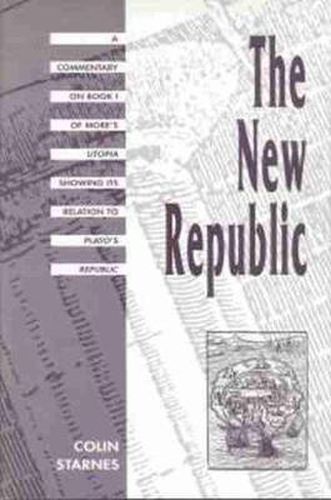Readings Newsletter
Become a Readings Member to make your shopping experience even easier.
Sign in or sign up for free!
You’re not far away from qualifying for FREE standard shipping within Australia
You’ve qualified for FREE standard shipping within Australia
The cart is loading…






Colin Starnes radical interpretation of the long-recognized affinity of Thomas More’s Utopia and Plato’s Republic confirms the intrinsic links between the two works. Through commentary on More’s own introduction to Book I, the author shows the Republic is everywhere present as the model of the
best commonwealth,
which More must first discredit as the root cause of the dreadful evils in the collapsing political situation of sixteenth-century Europe. Starnes demonstrates how More, once having shorn the Republic of what was applicable to a society that had for a thousand years accepted and been moved by the Christian revelation, then
Christianized
it to arrive at one of the earliest and most coherent accounts of the ideal modern state: the description of Utopia in Book II.
Knowing this radically new view of a long-recognized position may be questioned, the author has included a criticism and appreciation of the other major lines of interpretation concerning More’s Utopia.
$9.00 standard shipping within Australia
FREE standard shipping within Australia for orders over $100.00
Express & International shipping calculated at checkout
Colin Starnes radical interpretation of the long-recognized affinity of Thomas More’s Utopia and Plato’s Republic confirms the intrinsic links between the two works. Through commentary on More’s own introduction to Book I, the author shows the Republic is everywhere present as the model of the
best commonwealth,
which More must first discredit as the root cause of the dreadful evils in the collapsing political situation of sixteenth-century Europe. Starnes demonstrates how More, once having shorn the Republic of what was applicable to a society that had for a thousand years accepted and been moved by the Christian revelation, then
Christianized
it to arrive at one of the earliest and most coherent accounts of the ideal modern state: the description of Utopia in Book II.
Knowing this radically new view of a long-recognized position may be questioned, the author has included a criticism and appreciation of the other major lines of interpretation concerning More’s Utopia.